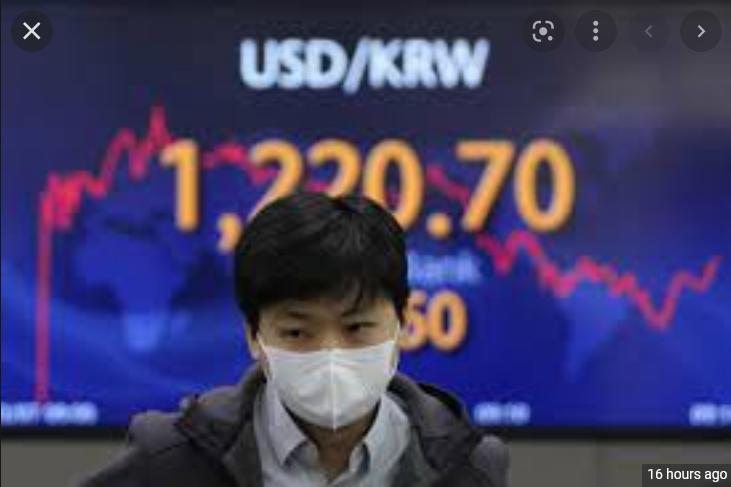Africa-Press – Gambia. TOKYO (AP) – Oil prices jumped and shares fell sharply on Monday as the conflict in Ukraine deepened amid mounting calls for harsher sanctions against Russia.
Brent crude oil briefly surged above $130 a barrel but was trading around $125 a barrel later Monday. Benchmark U.S. crude also bounced, gaining $10 and then giving up some of that advance.
European markets opened lower and U.S. futures were down 1.7%. The price of gold surged above $2,000 an ounce as investors bought the precious metal viewed as a safe haven in times of crisis.Russian forces pummeled some Ukrainian cities with rockets even after Moscow announced another cease-fire and proposed a handful of humanitarian corridors to allow civilians to flee Ukraine starting Monday. A similar temporary cease-fire in two Ukrainian cities failed over the weekend, with both sides blaming each other.
Oil prices came under additional pressure after Libya’s national oil company said an armed group had shut down two crucial oil fields. The move caused the country’s daily oil output to drop by 330,000. But reports said U.S. officials may be considering easing sanctions against Venezuela. That potentially could free up more crude oil and ease concerns about reduced supplies from Russia.
U.S. crude jumped $6.92 to $122.60 a barrel in electronic trading on the New York Mercantile Exchange. The all-time high was marked in July 2008, when the price per barrel of U.S. crude climbed to $145.29. That pushed the average price for gasoline in the U.S. above $4 a gallon, a milestone already reached again.
People react to overnight gas price spike
Higher fuel costs are devastating for Japan, which imports almost all its energy. Japan’s benchmark Nikkei 225 lost 2.9% to 25,221.41. Hong Kong’s Hang Seng dropped 3.9% to 21,057.63, while South Korea’s Kospi slipped 2.3% to 2,651.31. Australia’s S&P/ASX 200 shed 1.0% to 7,038.60. while the Shanghai Composite lost 2.2% to 3,372.86.
“The Ukraine-Russia conflict will continue to dominate market sentiments and no signs of conflict resolution thus far may likely put a cap on risk sentiments into the new week,” said Yeap Jun Rong, market strategist at IG in Singapore.
“It should be clear by now that economic sanctions will not deter any aggression from the Russians, but will serve more as a punitive measure at the expense of implication on global economic growth. Elevated oil prices may pose a threat to firms’ margins and consumer spending outlook,” Jun Rong said.
Shell pledges to put profits from Russian oil purchases in Ukrainian aid fund
China reported Monday that its exports rose by double digits in January and February before Russia’s attack on Ukraine roiled the global economy.
Customs data show exports grew by 16.3% over a year earlier in a sign global demand was recovering before President Vladimir Putin’s Feb. 24 invasion. Imports advanced 15.5% despite a Chinese economic slowdown that the war threatens to worsen.
China’s No. 2 leader, Premier Li Keqiang, warned Saturday global conditions are “volatile, grave and uncertain” and achieving Beijing’s economic goals will require “arduous efforts.”
Markets worldwide have swung wildly recently on worries about how high prices for oil, wheat and other commodities produced in the region will go because of Russia’s invasion, inflaming the world’s already high inflation. The list of companies exiting Russia has grown to include Mastercard, Visa and American Express, as well as Netflix.
How Ukraine impacts complicated Russia/China relationship
The conflict in Ukraine also threatens the food supply in some regions, including Europe, Africa and Asia, which rely on the vast, fertile farmlands of the Black Sea region, known as the “breadbasket of the world.”
Wall Street finished last week with shares falling despite a much stronger report on U.S. jobs than economists expected. The S&P 500 fell 0.8% to 4,328.87, posting its third weekly loss in the last four. It is now down just under 10% from its record set early this year.
In currency trading, the U.S. dollar edged up to 115.08 Japanese yen from 114.86 yen. The euro cost $1.0830, down from $1.0926.
For More News And Analysis About Gambia Follow Africa-Press






